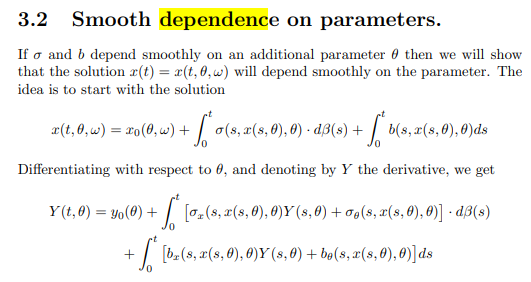For each $\theta\in \mathbb{R}$, we consider a stochastic differential equation (SDE): $$ d X_t =b(t,X_t,\theta)dt+\sigma dW_t,\; t\in [0,T];\quad X_0=x_0\in \mathbb{R}, $$ where $\sigma\ge 0$ and the function $b$ is sufficiently smooth such that the above SDE admits a square integrable adapted solution $X^\theta$. To study the regularity of $\theta\to X^\theta$, for the ODE case with $\sigma=0$, one approach is to apply the implicit function theorem (IFT). However, I didn't find any literature for applying the same approach to study the sensitivity of SDEs.
Is it because it is difficult to view the SDE (which is in fact an integral equation) as an operator on proper function spaces, and to study the invertibility of the Frechet derivative? Could you point me to some references on applying IFT in the context of SDE?


